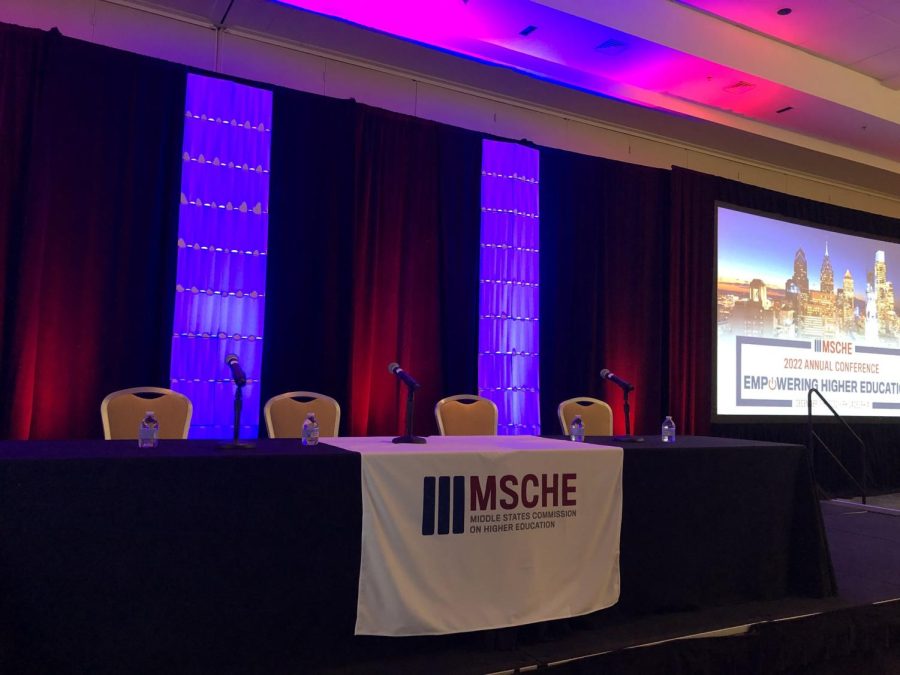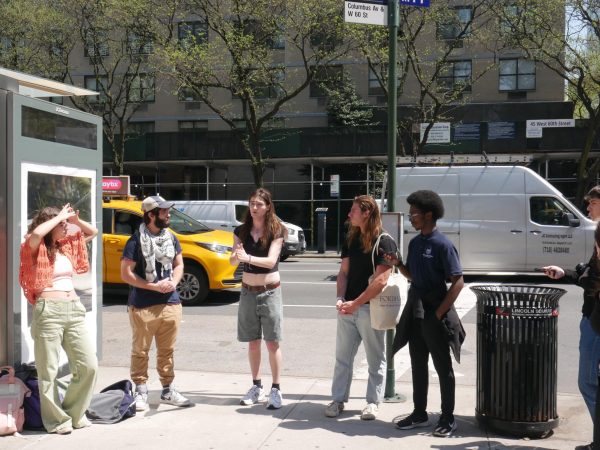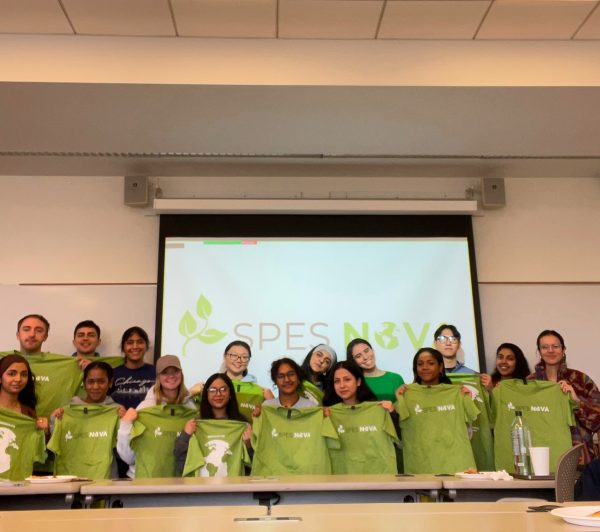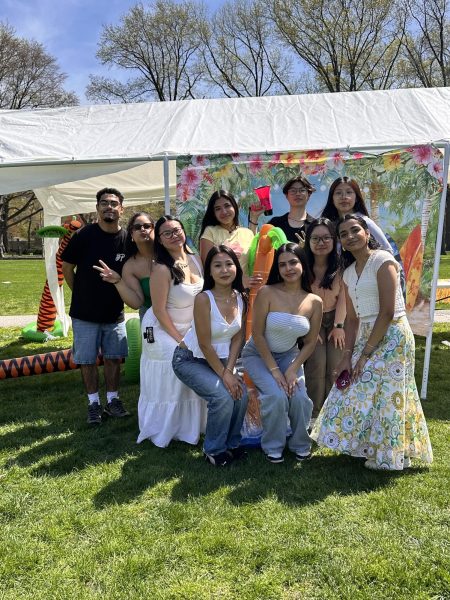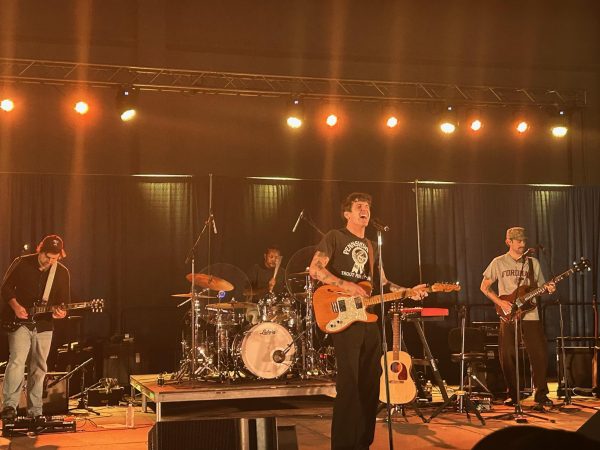SLC Discusses Steering Committee and Club Absences
On Wednesday, Feb. 8, Rose Hill held its monthly Student Life Council (SLC) in the McShane Campus Center with a special guest from one of the co-chairs of the Steering Committee.
The Steering Committee is leading a self-study of the university before the upcoming evaluation from the Middle States Association of the Commission of Higher Education (Middle States) in 2025, which determines the university’s accreditation.
The meeting was commenced by Kendra Kleintop, GSB ’24, vice president of RHA. She introduced Greer Jason-DiBartaolo, who is one of the co-chairs of the Steering Committee and a dean from the Gabelli School of Business. The other co-chair, who was not present, is Melissa Labonte from the political science department at Rose Hill.
Jason-DiBartaolo started the meeting off and explained that all universities are evaluated by an independent group called the Middle States every eight years, and they conduct the university’s accreditation process.
“They reverify that the university should maintain its accredited status,” said Jason-DiBartaolo. “[This] process is a long one. It takes over two years, and we just started in fall of 2022. It will culminate in a visit in spring [of] 2025.”
She explained that the self-study aims to be “thorough, reflective, transparent and also inclusive.” Right now, the co-chairs are putting together the committee by getting representatives from across the university.
They are also putting together a self-study design, which is a report that explains how they are going to go about the process of the self-study and what they are going to submit.
There are seven standards that the Middle States uses for evaluation. As part of the self-study, Jason-DiBartaolo explained that there is also a set of institutional priorities. In addition to fulfilling the seven standards and requirements of the Middle States, the university has to outline these school-specific priorities.
“[They] are what is important to us right now at this moment in our history,” said Jason-DiBartaolo.
She explained that there are four institutional priorities that include positioning “Fordham as a leader in the creation and advancement of knowledge,” “enhanc[ing] the holistic student experience,” “cultivat[ing] a diverse, equitable, inclusive, caring and connected community” and “promot[ing] institutional vitality and continuous improvement.”
Jason-DiBartaolo noted that the Steering Committee has an email ([email protected]), where any students can send in questions.
The next agenda item was the student intoxication transports updates that Charles Clency, director of residence life, discussed.
There were 11 intoxications and one refusal to medical assistance (RMA) compared to eight intoxications and one RMA last spring.
Kleintop then opened the floor for any comments from the gallery.
Alexander Yankovksy, FCRH ’24, who is president of Model United Nations and secretary of the Fordham Debate Society, raised an issue on behalf of clubs.
Yankovksy discussed that his clubs compete against other big schools, such as Yale and Harvard, to show their worth in competition. But, because of Fordham’s club student absence policy, they are unable to do this.
“We were informed last semester that the student absence policy was going to change,” said Yankovksy.
Yankovksy explained that they were denied excused absences despite how in his previous years at Fordham club-approved trips were excused. This then leaves it up to the professor whether or not the students are able to miss the class.
“Students that participate are smart and dedicated and will make up [the] work that they miss,” said Yankovksy. “This creates a massive issue for us, for the future, for the survival of these clubs.”
Yankovksy had two other agenda items but asked for any comments.
Santiago Vidal, FCRH ’24, executive president of USG, followed up on Alex’s point. He said that he followed up on the policy before with FCRH, and he got a response that clubs do not have any absences available for this semester because of the school trying to uphold credit hours for classes.
Eron Maltzman, vice president of finance and budgets, GSB ’25, asked whether this would apply to all clubs, such as SPOON University, if they wanted to go on a food outing.
Yankovksy responded by saying that since they are competitive, like other sports teams, they need the excused absences. His main point was that “the policy was there and then it was gone,” and they were left having to deal with it.
Christopher Rodgers, dean of students, responded to Maltzman’s point that the question has been raised in the past about the validity of the absence and parameters of the policy. He also asked if the written policy was changed or just the way it was implemented.
Yankovksy responded that to his knowledge the policy was that university-funded events were eligible for excused absences. Previously, he would fill it out and get accepted, but now he gets denied. He does not know if the written policy was specifically changed.
Vidal mentioned that sports and athletics that want to travel on the day of classes are university-sanctioned, so they can submit an excused absence.
Alessandra Carino, FCRH ’23, president of the Commuting Students Association, mentioned that following up with athletics might help, and they could be an ally to the situation.
Aftering concluding the topic, Kleintop asked about his other agenda item.
Yankovksy explained that any sort of overnight travel requires a chaperone. He explained that it is an added cost for the club, and it can be difficult to find a chaperone who has time to attend. In addition, sometimes the chaperone is not knowledgeable about the subject, so they do not add any knowledge to the experience besides chaperoning.
Kleintop asked if the council had any discussion to raise.
“Have you ever had to cancel your trip because you have not been able to find a chaperone?” asked Rodgers.
While it has not happened yet, Yankovksy explained that it has been a possibility before.
Catherine McGlade, assistant dean of student involvement, encouraged clubs to work with their advisors first and extended an invite to them to reach out if they needed help finding a chaperone. In addition, she added that an overnight trip can have risks associated with it, so someone needs to be there to connect with the university in case of an emergency.
The next agenda item was going over Campus Activities Board’s (CAB) recent events. Ava Devita, president of CAB, FCRH ’23, said that the club had multiple Valentine’s events throughout the week, and it was planning to have Spring Weekend in the last week of April.
Carino went over Commuting Students Association’s recent events. Carino noted that programming will still have a Commuter Week, but it will now be a Commuter Month.
Nicole Jara Andrade, a graduate intern at the Office of Multicultural Affairs (OMA), said that Martin Luther King Junior Week was completed and that the association was working on Women’s History Month next. They are also working on the diversity graduation celebrations.
For USG updates, Vidal had multiple items. At their next meeting, the board/team planned a statement on Turkey and Syria, a proposal to extend the hours of the Marketplace and a proposal to subsidize the cost of expensive STEM books.
Lauren Walcyzk, FCRH ’23, who is vice president of operations for USG, said there were 25 new club applications received. She then went over previous years of club applications that were received and which ones became defunct.
Maltzman said the biggest update for his committee was that people are concerned about funding and why they didn’t receive their normal amounts. He explained that this year had the highest value of requests that were ever seen: there were more clubs, more participants and, in general, more inflation than in past years.
Arlene Ganess, assistant director for student organizations and programming, gave an update about the club fair. She said that there were just under 160 tables, and the entire student center was utilized.
Next, Stephanie Sheehan, assistant director for leadership, development and training, talked about resident assistant updates. Sheehan said the team is in the hiring process for resident assistants, and they had a successful event with athletics.
Clency said they are actively engaged in room selection that went live on Feb. 1 and closes Feb. 15.
After a few more remarks on the club fair, the floor was opened for more discussion after finishing the agenda items, and the meeting concluded when there were no more items.
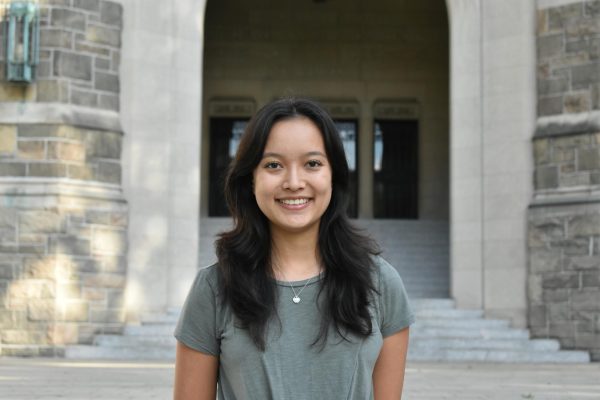
Emma Kim is a junior from Pittsburgh. She is double majoring in economics and English. She started as a contributing writer for news in her freshman year...



































































































































































































